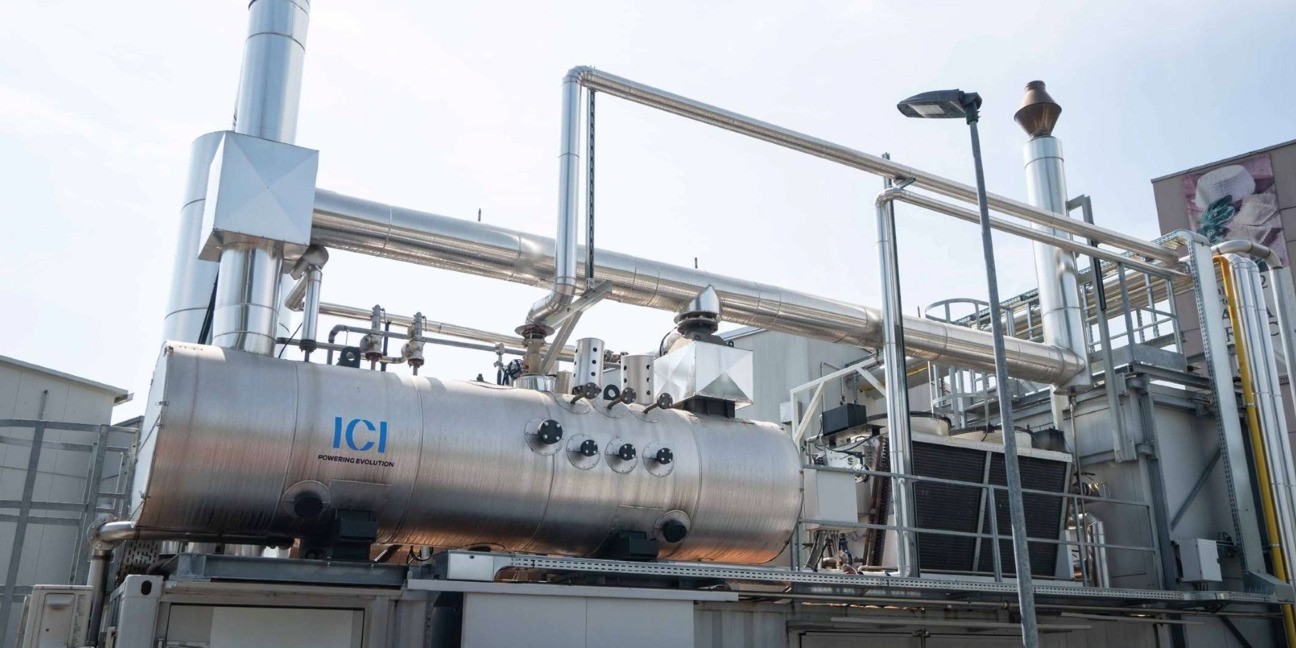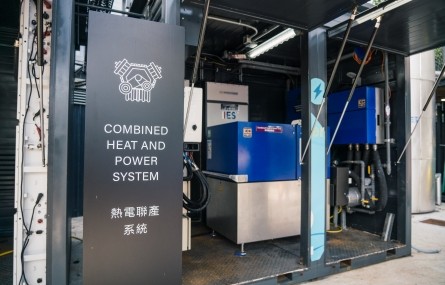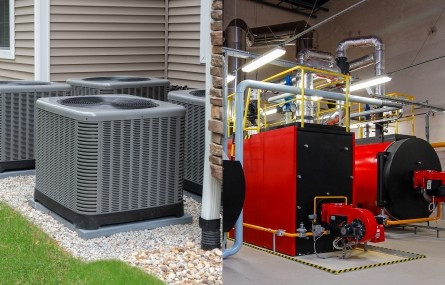Reducing Carbon Emissions with High-Efficiency Condensing Boilers

Reducing Carbon Emissions with High-Efficiency Condensing Boilers
As Hong Kong pushes toward a net-zero future, improving energy efficiency in building systems is a critical step. One of the most effective ways to reduce energy consumption and carbon emissions in heating systems is by adopting condensing boiler technology. Unlike conventional boilers, condensing boilers maximize energy utilization by recovering heat that would otherwise be lost. This article explores how condensing boilers work and why they are a key solution for energy efficiency in Hong Kong’s urban landscape.
How Condensing Boilers Work
Traditional gas-fired boilers operate by burning fuel to heat water, but a significant portion of the energy—often over 20%—is lost through the flue gases. Condensing boilers, however, leverage advanced heat exchangers to extract heat from exhaust gases, cooling them to a temperature where water vapor condenses into liquid. This process allows the system to recover latent heat from the vapor, dramatically improving efficiency.
By utilizing the waste heat that would otherwise be expelled, condensing boilers achieve thermal efficiencies of up to 98% (compared to 75–85% for conventional boilers). This efficiency translates directly to lower fuel consumption (by up to 30%) and a significant cut in carbon emissions—typically reducing CO2 output by up to 1.2 tons per year per boiler (based on a 200 kW system running at 1,500 hours annually).
Figure: Simplified Diagram of a Condensing Boiler
Source: What Is A Condensing Boiler? - Go Greena Blog
Comparison: Condensing vs. Non-Condensing Boilers
Why Condensing Boilers are Essential for Hong Kong's Net Zero Goals
1. Reducing Carbon Footprint
Hong Kong's commercial and residential buildings contribute to over 60% of total carbon emissions, largely due to energy use in heating, ventilation, and air conditioning (HVAC) systems. By adopting condensing boilers, buildings can significantly lower their CO2 emissions, with studies showing a 15-20% reduction in greenhouse gases compared to non-condensing systems.
2. Enhanced Energy Efficiency and Cost Savings
Hong Kong's high energy costs make efficiency a top priority for businesses and property owners. Condensing boilers provide immediate savings on energy bills by consuming 25-30% less gas for the same heat output. For a typical commercial building using 10,000 cubic meters of gas annually.
3. Compliance with Sustainability Regulations
The Hong Kong government is enforcing stricter energy efficiency standards to align with its Hong Kong Climate Action Plan 2050. Upgrading to condensing boilers helps buildings meet compliance requirements for BEAM Plus, BEEO (Building Energy Efficiency Ordinance), and EMSD energy codes, ensuring long-term viability in the market.
4. Integration with Renewable Energy Systems
As decentralized energy solutions grow in Hong Kong, condensing boilers can seamlessly integrate with solar thermal and hydrogen-based heating systems to further enhance efficiency. When coupled with solar pre-heated water systems, condensing boilers can operate at return water temperatures as low as 40°C, maximizing condensation efficiency and reducing gas consumption further.
Key Considerations for Implementation
To maximize the benefits of condensing boiler technology, engineering professionals must focus on:
-
Correct Sizing & System Design – Ensuring the boiler matches the building’s heating load to avoid short cycling and inefficiencies.
-
Low Return Water Temperatures – Optimizing return water temperatures below 55°C enhances condensation efficiency.
-
Regular Maintenance & Monitoring – Keeping the system clean and well-maintained sustains high efficiency over time, with potential efficiency drops of 5-10% if neglected.
-
Smart Controls & IoT Integration – Implementing real-time monitoring systems improves energy management and allows for predictive maintenance, reducing downtime and operational costs.
The Future of High-Efficiency Heating in Hong Kong
As Hong Kong accelerates its path toward net-zero emissions, integrating energy-efficient heating solutions like condensing boilers will be pivotal. The transition to advanced boiler technology not only reduces carbon footprints but also supports sustainable building practices in a high-density urban environment.
IES Engineering Hong Kong Limited is committed to driving innovation in energy efficiency solutions. By adopting condensing boilers and other sustainable technologies, we can help businesses meet their energy goals while contributing to a greener Hong Kong.
For expert consultation on high-efficiency heating solutions, contact IES Engineering Hong Kong Limited today.



